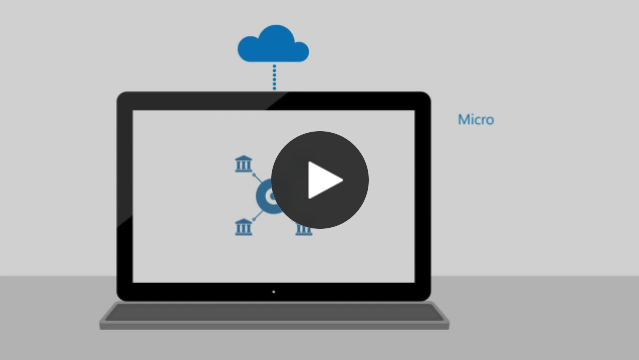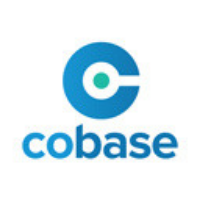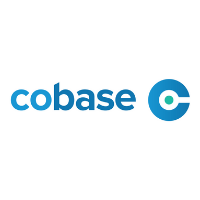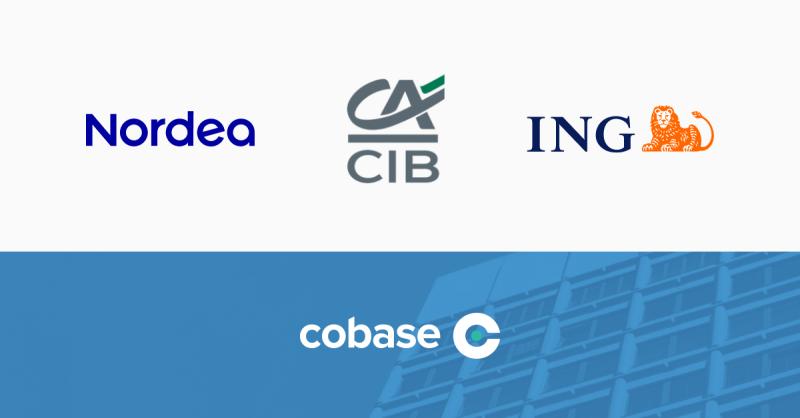How Cobase is using Cloud Technology to build and grow its Fintech Solution
22-11-2021| Cobase | treasuryXL | LinkedIn
Dutch fintech Cobase is a multibank platform that allows companies to manage accounts from many different banks via a single platform that includes a central Payment Hub, Cash Management and Treasury modules. Born in Azure, the company has made cloud technology the very foundation of its solution and the key to its current and future operations. Azure is helping them to build out their solution at high pace and stay compliant with strict regulations imposed on the financial services industry.
“We’re passionate about building business applications that drive value for our customers. But being a scale-up, our resources were limited. That’s why having a Platform as a Service (PaaS) approach was so important. It kept us agile, flexible – and meant we could focus on innovation and delivering applications for our clients rather than spending time and talent on running our own datacenter and underlying IT infrastructure.”
Cobase CEO Jorge Schafraad is describing the culture of innovation that his company strives to promote, and how cloud technology is helping to achieve it. A fintech scale-up based in the Netherlands, Cobase prides itself on leveraging innovative technology to serve corporate clients and the banking sector.
Born in the cloud, the company has been running on Azure PaaS since it was founded. This is playing a key role in helping them venture into the fintech market, a fast-paced and competitive industry where agility and ability to innovate are essential requirements.
With no legacy hardware and software to worry about, Cobase’s PaaS approach has freed them to focus resources away from the infrastructure requirements that come with starting a company – and focus on their core business.
“All we want is to focus as much as possible on application development and providing functionality to our end users, to our customers,” he continues. “And at the same time, we want to invest as little as possible on developing underlying generic infrastructure.”
A greenfield opportunity too good to be missed
Founded in 2016, Cobase has developed a platform that helps companies access and manage multiple accounts at many different banks from a single platform. “If a company has 10, 20 or even more banks that it does business with, the last thing they want is to have to log onto multiple banking applications and connect their ERP system to each bank individually,” Schafraad explains. “So we’ve built a solution to help them manage that.”
The Cobase platform extracts and puts together data from different banks and customers, while also providing its users with a single place of access to manage and oversee their accounts.
Looking back at Cobase’s early days, Schafraad recalls how taking a cloud-native approach helped him get the company up and running in what was, and still is, a heavily regulated industry.
“We started five years ago, and were deciding whether or not the cloud was advanced enough to support our business,” Schafraad says. “In fact, we came close to being one of the last scale-ups to buy their own hardware… thankfully we didn’t go down that route!
“In the end, we went all in on Azure Platform as a Service. We have no server hardware at all – nothing but laptops and some printers. We realized that we had this great greenfield opportunity ahead of us. We had no legacy applications, and we want to keep it that way as much as possible.”
Cobase saw Azure as the ideal cloud solution for its need to comply with the certifications and strict requirements that come with operating in the finance sector, supervised and regulated at both a national and international level.
For scale-ups like Cobase, this is often a complex and costly process that requires a lot of time and resources. “We know that Azure has been built for the finance industry with these regulations in mind. This helped us make sure that our platform and the Azure organization behind it were compliant and able to be fully audited as needed,” he says.
“That was a significant driver for us, as it allowed us to focus our resources on building applications on top of our compliant platform.”
How Azure is empowering Cobase’s work
In the space of five years, Cobase has been able to consolidate its presence in the industry and now employs 70 people. Five years since its launch, the company is enjoying an agile and dynamic environment that gives its developers the freedom to focus on developing services and expand the company’s offerings.
“Being on the cloud makes everything easier, for example when it comes to setting up new environments or experiment with new components,” says Schafraad.
“The agility we have is, in one word, fantastic. We can try and test new innovative solutions and make informed investment decisions on whether to proceed or stop and trial different avenues. This fail-fast approach that Azure enables really empowers us to grow.”
This also translates into enhanced scalability for Cobase, which has educated its staff on how to consume cloud services in a structured, cost-efficient way. The staff is now enjoying being able to modify the platform fast and efficiently.
“Our applications are built and deployed in Azure DevOps and then land on an Azure Kubernetes Services clusters,” explains Schafraad. “This helps us to make our cloud environment more elastic and more agile when it comes to scaling.
“Many financial institutions operate in an environment where ordering a new server or other IT components could take months, we can make changes within minutes,” he says.
“This is better for the company, but also for the people working in our teams, as it brings so much more fun to their jobs and less frustration.”
Building a partnership based on trust
The successful implementation of Azure PaaS persuaded Cobase to expand its range of Microsoft products. Their infrastructure predominantly runs on Linux, while Azure Kubernetes Service is used as a container orchestration platform.
Alongside Azure DevOps, the company has rolled out M365 for its entire workplace environment. They’re now running data both on Microsoft Azure SQL and through Open Source Databases like MariaDB on Azure. Power BI is also being used for low-code, no-code purposes and to set up data reporting.
As Schafraad explains, what really set Microsoft apart from other vendors was its availability to meet Cobase’s legal and compliance demands – which helped them to create a strong foundation based on trust.
“Since our very beginnings, our relationship with Microsoft has been more than what you would typically expect from your vendor,” says Schafraad. “We were a very small customer for Microsoft, so looking back at the amount of attention we received, we couldn’t be happier.”
He recalls creating an environment of mutual trust and cooperation early on. “When we started, we certainly needed some education on how to operate in the cloud, and Microsoft really helped us with that,” he continues. “And that proved to us that we could trust them, they really wanted us to be successful.”
“It was a fast-track experience for us especially form a technology perspective, as having Azure available for us right away helped us kick things off rapidly and effectively.”
Paving way for more collaboration
As Cobase continues to navigate the financial services sector, its relationship with Microsoft has developed into a true partnership. The two have now become each other’s point of reference, with Microsoft providing the solutions and Cobase helping to bring new customers to Azure.
“We’ve reached a point whereby if I need a specific solution or technology, the first thing I’ll do is ask Microsoft if they have it or plan to deploy it soon,” comments Schafraad. “And even if it’s not in the cards for a while, I’m happy to wait for its release – like the new Confidential Computing concept that’s in development.”
Looking ahead, this collaboration will continue to play a crucial role for Cobase. “If we grow as a business, then we will need more Azure resources, we will need more of everything, more machines, more memory, while also remaining capable of controlling our costs,” he concludes.
“What we ultimately want is to keep everyone focused on value creation and delivering for our customers and having the right set of tools and infrastructure is crucial.
“Whatever these will be, we know that our partnership with Microsoft will continue to provide them.”










